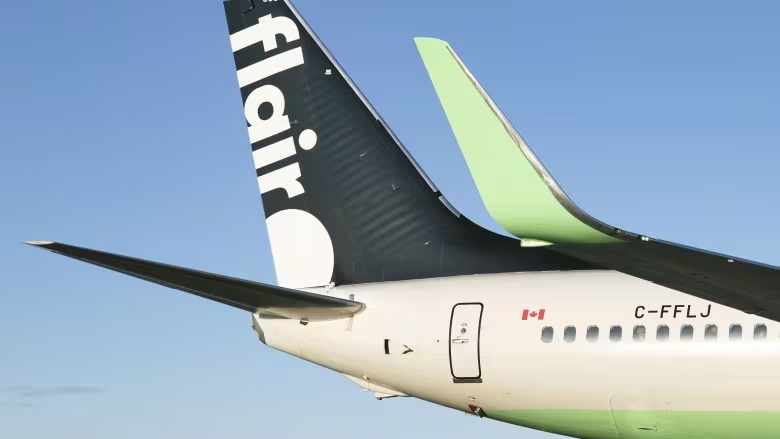
A new $30 million lawsuit marks the latest act in a nearly year-long drama in Canadian aviation over lease payments. (Flair Airlines via The Canadian Press)
Miami-based 777 Partners, a significant investor in Flair Airlines, has labeled the $30-million lawsuit filed against it by aircraft leasing firms as "premature at best." The legal action, initiated by Corvus Lights Aviation, MAM Aircraft Leasing 4, and Columba Lights Aviation, alleges missed lease payments by Flair Airlines, with 777 Partners guaranteeing these payments. The dispute revolves around the repossession of four jets, including a Boeing 737-800 and three 737 Max 8s, last spring.
Three of these leases were backed by 600 Partners, a sister company to 777 Partners, and it is also named in the lawsuit. Flair Airlines itself launched a $50-million court action against the three leasing firms and Airborne Capital, the entity managing their planes, in the Ontario Superior Court of Justice in the previous year.
The airline's legal action claims that Airborne Capital and the leasing firms orchestrated the seizure of aircraft, alleging a breach of lease agreements and an illegal termination of leases.
The legal battle stems from Flair's assertion that Airborne Capital and the leasing corporations clandestinely pursued a better deal for the Boeing 737 Maxes with a third party, setting Flair up for default. Flair alleges that the seizures were conducted in a bad faith and malicious manner, causing significant harm to the airline, including interference with passenger relationships and trust.
Flair's spokesperson, Gabrielle Poirier, deemed the payment demands from Airborne as "baseless," emphasizing that Flair no longer leases the jetliners. While not involved in the lawsuit, Flair maintains its position against Airborne's actions, characterizing them as egregious.
The airline's legal filings state that agents seized the aircraft in the middle of the night, disrupting passenger relationships and causing substantial harm. Flair received no notice, hindering its ability to alert or rebook customers. The legal wrangling adds another chapter to the ongoing drama in Canadian aviation, reflecting the complexities of aircraft leasing agreements, the impacts of supply bottlenecks, and the challenges associated with high travel demand.















